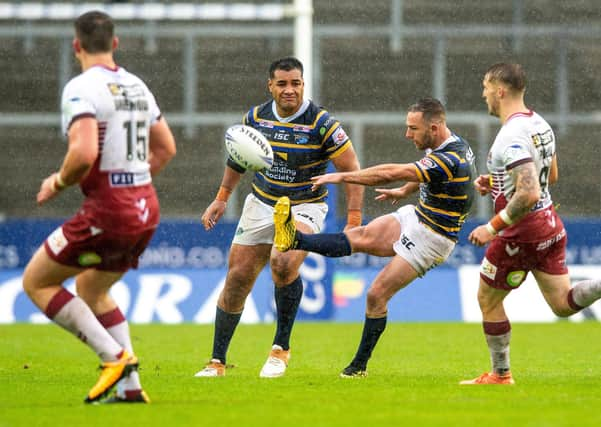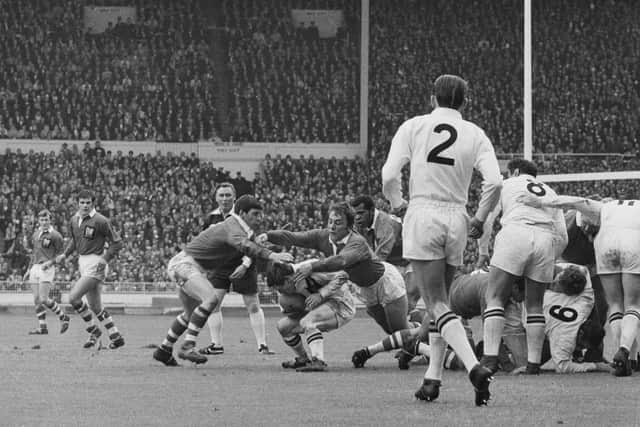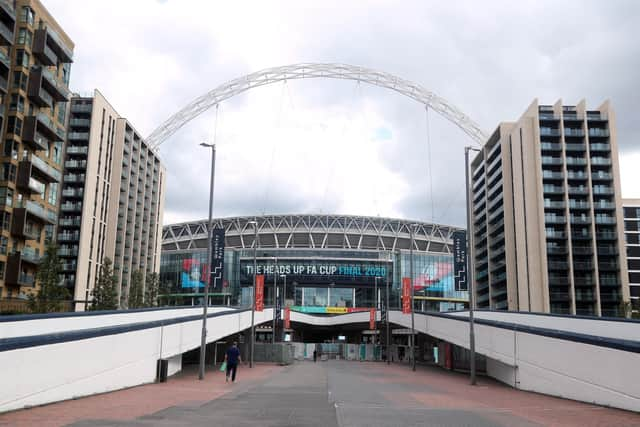Peter Smith’s Inside Rugby League - Our sport can’t afford to lose its Wembley showpiece


Salford are heading to Wembley for the first time since 1969 and supporters who have waited an entire lifetime to see their team play at the national stadium won’t be allowed in to watch.
The Leeds Rhinos faithful will be just as disappointed, having endured three relegation battles in recent seasons, but at least they have previous visits to Wembley to look back on.
Advertisement
Hide AdAdvertisement
Hide AdIt is one of those unfortunate situations which is nobody’s fault. Clearly, it would be possible to accommodate some fans in a 90,000-seater venue while sticking to social distancing rules.


One person in every four seats would allow 22,500 to attend, which is enough to keep season-ticket holders of both clubs happy and allow some others in as well.
But it is not just the situation inside the stadium which is a concern; there’s the question of getting people in and out, plus access to bars, toilets and other facilities.
And, probably above all, the Yorkshire and the north west are two Covid hotspots so clearly transporting thousands of people from there 200 miles in the middle of a pandemic isn’t a sensible option.
Advertisement
Hide AdAdvertisement
Hide AdThe RFL (Rugby Football League) took a decision to stage the final at Wembley and maybe another, smaller, northern venue would have been an option.


With no fans permitted, the final could have been played at Huddersfield - for example - and perhaps supporters would not feel quite so bad about missing out.
But then again, that wouldn’t have been fair on the players, who might never get another chance to run out at Wembley.
Leeds captain Luke Gale, for example, has achieved a lot in the game, but never played at Wembley.
Advertisement
Hide AdAdvertisement
Hide AdHe may not get another chance so it would be wrong to deny him the opportunity.
Behind-closed-doors rugby is weird enough at a venue like Emerald Headingley or TW Stadium and it is going to be off-the-scale strange amid the wide-open spaces at Wembley. But some players go through an entire career without having an opportunity to play there and, crowd or not, a Wembley appearance is going to be memorable.
Obviously it won’t be the same experience, playing in an empty stadium, but it will still be special for those involved.
Then there’s the broadcaster to consider.
The Challenge Cup final remains a showpiece event for the BBC and has more prestige if played at Wembley. In any case, it is not an RFL decision. They are following government guidelines and, while the sport hasn’t entirely given up hope of a u-turn, with just two weeks between semi-finals and final there probably isn’t time for a change of mind.
Advertisement
Hide AdAdvertisement
Hide AdAs with everything this year, the Challenge Cup has been affected badly by coronavirus. The lower-division clubs which survived into round six pulled out, there was a redraw and both Leeds and Salford needed only two wins to reach the final.
The record books will show an asterisk next to the name of whichever team wins on October 17, but it will be a victory for the sport.
This year, what’s important for the code as a whole is not so much who wins silverware as ensuring somebody does.
It would have been easy to abandon the competition when the scale of the Covid-19 crisis became known during the lockdown, but not the right thing to do. There’s an old saying about not missing something until it’s no longer there. This year’s shutout might actually revive some interest in the Cup final, which has been declining throughout the summer era. The best way to make anyone want to do something is to tell them they can’t. A new team in the final - and two upsets at the last-four stage - was just what this year’s competition needed and there is the potential for Wembley 2020 to be a cracking game.
The Challenge Cup final is one occasion when rugby league attracts a wider audience and the sport can’t afford to lose that.
Comment Guidelines
National World encourages reader discussion on our stories. User feedback, insights and back-and-forth exchanges add a rich layer of context to reporting. Please review our Community Guidelines before commenting.